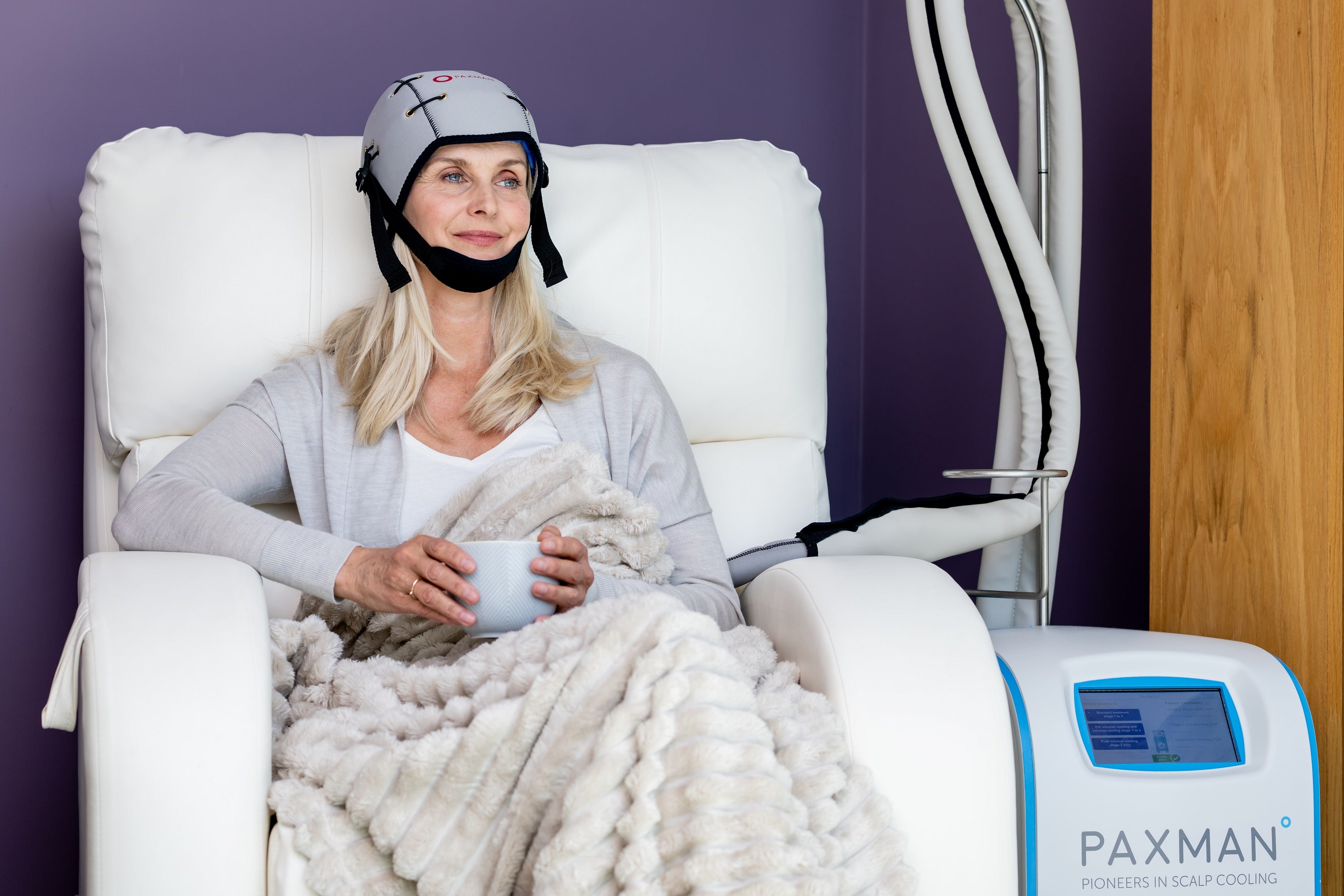Scientists have unveiled a groundbreaking new approach described as a "powerful double weapon" to combat hair loss in cancer patients undergoing chemotherapy.
This innovative method combines the established practice of scalp cooling, where patients wear a cold cap to minimise drug damage to hair follicles, with a novel lotion rich in antioxidants, similar to those found in red grapes.
The research, hailed as a "milestone", has not only pinpointed the optimal temperature for scalp cooling but also demonstrated the enhanced protective effect when combined with the antioxidant treatment.
Researchers at Sheffield Hallam University discovered that cooling the scalp to 18C effectively prevents hair follicle damage, whereas 26C offers insufficient protection.
Scalp cooling works by restricting blood flow to the scalp, thereby reducing the amount of chemotherapy medication reaching the hair follicles.
The team has further shown how integrating topical antioxidants with cooling could "transform the ability of cooling to protect" against hair loss.
Dr Nik Georgopoulos, an associate professor of cell biology and Transforming Lives fellow at Sheffield Hallam University, said that he views hair loss as the “face of cancer”.
“The reason why people get hair loss is because, at the base of the hair follicles, there are these rapidly dividing cells that are actually feeling the toxicity of chemotherapy drugs,” he said.
“Chemotherapy drugs are drugs that kill rapidly dividing cancer cells, but they cannot discriminate between cancer cells and rapidly dividing normal cells in the body.
“At the base of our hair follicles are these rapidly dividing cells, or keratinocytes, that constantly grow and they end up forming the actual hair.”
For the study, published in Frontiers of Pharmacology, hair follicles were isolated from the scalp and grown in the lab before being treated with chemotherapy to study the impact.
“We show that they die,” Dr Georgopoulos said. “The cells that are rapidly dividing and grow the hair, they will die because of the toxicity of chemotherapy.
“But if you cool them, they are protected, and I don’t mean just protected – prevented from dying.
“So if cooling is used while the hair follicles are grown in the lab, it can completely prevent the toxicity. But there is a catch – you have to use the right temperature.”
While an optimal temperature was highlighted in the study, researchers also combined cooling with the lotion as a potential target for patients who may not respond to the cold cap technique.
It contained antioxidants like resveratrol, which is found in the likes of red grapes and peanuts, and N-Acetylcysteine, a dietary supplement.

Dr Georgopoulos said: “For some patients, cooling works, and for others it doesn’t. Because some heads – I call them stubborn – they don’t cool enough.
“By adding this topical product that delivers this antioxidant, we form a powerful double weapon that, based on our results in the lab, showed us it can transform the ability of cooling to protect.”
Dr Georgopoulos added that the antioxidant lotion is not “powerful enough” when used alone.
“The reason for that is cooling does multiple amazing things at the same time,” he said.
“What happens in the body when things go cold? You get the constriction of your blood vessels, they’re narrowing down, less blood goes to the scalp, less drug. It isn’t as simple as that.
“Our research has shown that cooling can slow down the cells, stops them from dividing – protection.
“It stops the chemotherapy drug going in – protection. It does multiple things at the same time as long as the cooling is optimal.
“If it isn’t optimal, our approach is now allowing us to actually say ‘it’s OK, it’s not an ideal scenario, but we compensate for it with our topical product’.”
Dr Georgopoulos has been working with Paxman Scalp Cooling for more than a decade.
The Huddersfield-based business has created a device that circulates coolant through a specially designed cooling cap, worn by the patient.
The cooling cap is worn for half an hour before chemotherapy treatment commences, during treatment, and for up to 90 minutes after all the drugs have been given.
It is now hoped the new technique, combining scalp cooling with the antioxidants, can be trialled with cancer patients using the Paxman device, with researchers currently finalising the antioxidants that will be used in the topical product.
Dr Georgopoulos said: “Our ongoing work will ensure that efficacy is as high as possible with the belief that a topical agent will not only dramatically enhance the efficacy of scalp cooling in protecting from hair loss, but also significantly accelerates hair recovery post chemotherapy treatment.”
New technique hailed as ‘powerful double weapon’ against chemo hair loss
Scientists celebrate ‘milestone’ as remains of man identified 12 years after death
Doctors’ strike over 29% pay rise risks breaking NHS, Streeting warns
Here’s why you should catch some rays this summer







